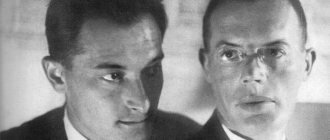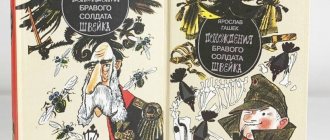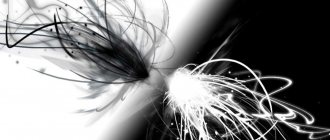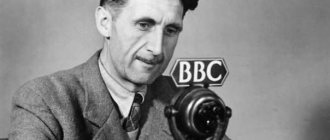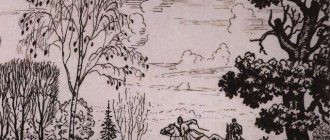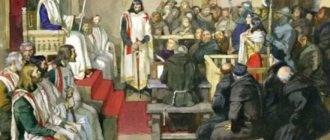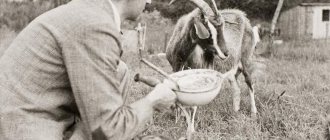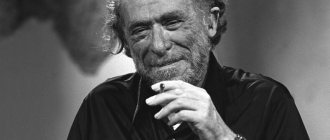Main characters
Alexey Turbin – doctor, 28 years old.
Nikolai or Nikolka Turbin is a young man of 17 years old, Alexei’s younger brother.
Elena is the sister of Alexei and Nikolai, her husband’s last name is Talberg, 24 years old.
Autobiographical features are visible in the work. The prototypes of the heroes of the novel are considered to be members of the Bulgakov family and the writer’s acquaintances. The author himself can be seen behind the image of the doctor Alexei Turbin. Elena Talberg-Turbina is his sister Varvara Afanasyevna Bulgakova, Nikolka Turbin is his brother, Nikolai Afanasyevich Bulgakov.
Sergei Talberg – Elena’s husband, a captain, serves on the General Staff under the Germans.
Vasily Lisovich, aka Vasilisa, is the Turbins’ neighbor from below, the owner of the house in which the family of the main characters lives.
Viktor Myshlaevsky is a family friend and classmate of Alexei Turbin.
Fyodor Stepanov, nicknamed “Karas”, just like Shervinsky and Myshlaevsky, is Turbin’s classmate at the gymnasium and is friends with his family. An officer with the rank of second lieutenant.
Leonid Shervinsky is a friend of Alexei, a military man, serves on the headquarters of Commander-in-Chief Belorukov, is in love with Elena Turbina.
Felix Nai-Tours is a colonel, commander of the army defending the city, N. Turbin serves under his command.
Illarion Surzhansky, aka Lariosik, is a relative of the Turbins who came from Zhitomir and lives in their house.
Colonel Malyshev is the division commander. Karas, Myshlaevsky and Alexey Turbin come to his service.
Julia Reiss is a young woman who saved the life of her older brother Turbin. She is married, but accepts signs of attention from Alexei.
Irina Nai-Tours is the sister of Colonel Nai-Tours. Nikolai Turbin falls in love with her.
Anyuta is a servant in the Turbins' house.
Petliura is a real historical figure, political figure, nationalist military leader.
Kozyr-Leshko, Toropets and Bolbotun are officers of the Petlyura army.
Image of Alexey Turbin
Alexey Vasilyevich Turbin is the main character of the novel by M.A. Bulgakov "The White Guard". Those who know the writer’s biography well immediately notice the autobiographical basis of the image. Mikhail Alekseevich’s maternal ancestors bore the surname Turbina. Bulgakov was in the service, and the hero of his novel was a military medic.
Alexey Turbin was born into a family of intellectuals. At the time of the story, the hero is 28 years old. The hero has a 24-year-old sister, Elena Turbina, and a 17-year-old brother, Nikolka. They live together in their parents' apartment. The younger sister and brother love Alexei very much, respect him, listen to his opinion.
Alexey Vasilievich has a gentle character. He is an intellectual, so he behaves accordingly, no matter what the situation arises. Turbin is not a hypocrite, but he simply cannot be very angry with someone.
Turbin Sr. knows how to speak beautifully and persuade. Turbin is a true patriot. He fights to the last with orders that, in his opinion, will only harm the Motherland. The hero defends his political views to the last: he remains a monarchist even after the death of the king. He is consoled by the thought that comrades Karas and Myshlaevsky agree with his opinion.
Alexey Turbin is wounded while trying to scout out the situation in Kyiv. Relatives and true friends have been trying for a long time to pull him out of the other world. And they succeed. The hero recovers, but becomes gloomy. Apparently, he realizes that his hopes for restoring the previous way of life in Russia are in vain.
A very short retelling
Historical context
There are German occupation troops in Kyiv - a legacy of the end of the First World War. Conservative pro-German holding forces led by Hetman Skoropadsky are in power. On the territory of Ukraine there is a struggle between the hetman's power and the socialist directorate. For now, Kyiv is a relatively calm place, where a variety of people are fleeing from the Bolshevik authorities from Russia. But soon the government must change. The troops of Petliura, a Ukrainian nationalist advocating the country’s independence, are approaching the city. The Germans are about to leave the city. The main events of the book are connected with the capture of Kyiv by Petliura's troops.
Members of the Turbin family gather in the kitchen. Elena is waiting for her husband to return. The floor below lives the owner of the house, Vasily Lisovich, or Vasilisa, who is terrified of being robbed.
Myshlaevsky, Karas and Shcherbinsky come to visit the Turbins. Discuss the situation in the city and country. Soon Thalberg appears and informs his wife that he is forced to leave her due to the political situation. With the Germans leaving, it is dangerous for him to stay here. Promises to return with Denikin's troops.
At the suggestion of Karas, Myshlaevsky and A. Turbin enter the service of Colonel Malyshev, but the latter soon disbands the troops. There is no official government in the city. Hetman Surzhevsky and Commander-in-Chief Belorukov fled the city.
Petlyura’s detachment enters the city. The regiment under the command of Nai-Tours defends the Polytechnic Highway and is forced to retreat. There is nowhere to wait for help.
Corporal Nikolka Turbin commands a small detachment. On the way they meet fleeing warriors of Nai-Turs. The colonel dies in front of the younger Turbin.
Not knowing about the disbandment of the division, Alexey goes to the gymnasium. At the volunteer reception point he meets Malyshev. He tells him that Petliura is in the city, orders him to take off his shoulder straps and return home. Alexei ends up in the center of Kyiv, catches the eye of the Petliurites and is wounded. He is saved by a girl named Julia. Alexei develops a liking for her.
Nikolai does not find his brother at home. The sister and the maid cry, thinking that he was killed. Talberg's relative Lariosik, who survived his wife's infidelity, comes to the Turbins from Zhitomir. At the same time, the wounded Alexey Turbin returns home with him. To hide the injury, the family decided to tell everyone that he had typhus. Later it turns out that he really has typhus.
The family expects that they will be searched. Vasilisa's neighbor is robbed by bandits under the guise of a search.
Alexey is dying. Elena prays for her brother’s salvation, and after a couple of months he is on the mend. Nikolai is looking for the relatives of Colonel Nai-Tours and reports his death. The young man takes a liking to his sister Irina.
Elena receives a letter from Warsaw. A Polish friend tells her that her now ex-husband Sergei Talberg has married someone else.
Petliura's power did not last long. Already in February he leaves the city. He will be replaced by the Bolsheviks.
Thalberg's image
Sergei Ivanovich Talberg is the negative hero of the novel by M.A. Bulgakov "The White Guard". The writer’s relatives and friends, after reading the work, immediately noticed the similarities between Talberg and Leonid Karum, the husband of Mikhail Afanasyevich’s sister Varvara. Karum also recognized himself in the literary hero. A serious conflict broke out between relatives. Nevertheless, Bulgakov continued to visit his sister and brother-in-law in Kyiv. Karum served under all the authorities, which in his time changed very often in Ukraine. He tried to adapt to everyone in order to rush up the career ladder.
Sergei Talberg from the novel “The White Guard” is an army captain who studied at the university and academy. This is evidenced by the badges on his uniform. Thalberg has German roots, a Baltic. During the coups, the captain opposed the Ukrainian Central Rada, participated in the hetman's coup, and served in the Skoropadsky ministry. With the latter, Thalberg fled to Germany, leaving his wife.
At the time of the events taking place in the novel, Thalberg is 31 years old. The author pays little attention to the hero's appearance. Several times he emphasizes the hero’s “double-layer eyes.” Apparently, this is his way of hinting at the captain’s duplicity. Thalberg is a good actor. He knows how to smile benevolently even to those whom he is not happy to see.
In 1917, the hero married Elena Turbina. It cannot be said that Sergei Ivanovich does not love his wife. But career and personal safety are higher than love for this person. At the beginning of the novel, we watch how Elena anxiously waits for her husband, knowing that he could fall into the hands of the Petliurists. Sergei came, but not to stay, but to break the news: he was leaving Kyiv. Talberg promises his wife that he will return soon. The captain does not dare to tell the woman’s brothers the same thing. He knows: the Turbines will not approve of this. This episode shows the hero as a cowardly, narcissistic person. Even in such situations, pride in himself does not leave him.
Elena Talberg leaves easily, without regret. Only a couple of times a man thinks about what he sacrifices for the sake of his career, then sincere feelings awaken in him, although not for long. Elena loves her husband, but understands that he is capable of destroying both his family and friends for the sake of his career.
Alexey Turbin hates Sergei Talberg. He sees how his sister suffers. In addition, Alexey cannot accept the fact that his son-in-law easily oversteps his conscience, and the laws of honor are alien to him. In addition, Turbin does not disapprove of his son-in-law’s service in the Hetman’s Ministry. Alexey Vasilyevich considers his relative a scoundrel, but he reproaches himself for not hitting him and not kicking him out. It can be assumed that Turbin Sr.’s attitude towards his son-in-law reflects the attitude of M.A. himself. Bulgakov to Leonid Karum.
M.A. Bulgakov contrasts Talberg with people who live according to the laws of conscience, thus revealing the problems of honor and betrayal.
Summary by chapter
M. A. Bulgakov introduces the novel The White Guard with two epigraphs.
“Fine snow began to fall and suddenly fell in flakes. The wind howled; there was a snowstorm. In an instant, the dark sky mixed with the snowy sea. Everything has disappeared. “Well, master,” the coachman shouted, “trouble: a snowstorm!” Alexander Sergeevich Pushkin. "Captain's daughter".
And the dead were judged according to what was written in the books, according to their deeds...
John the Theologian. "Apocalypse"
Epigraphs are important; they reflect the spirit of the era and Bulgakov’s attitude to the events described. Buran is an allegory of revolution as a harbinger of the Apocalypse.
Also at the beginning of the book there is a dedication to Lyubov Evgenievna Belozerskaya, the second wife of M. A. Bulgakov.
Part one
1
At the beginning of the novel, the author introduces the reader to the characters and the circumstances of their lives. Turbins are representatives of the Russian intelligentsia. Alexey, a doctor, returned from the fronts of the First World War. He has a younger brother Nikolka and a sister Elena. The family lives on the second floor of the house at Alekseevsky Spusk, building 13
The real Kiev address where Bulgakov lived is Andreevsky Spusk, 13. Today in this house there is a museum of the writer, which is also called the “Turbin Museum”
The mother of the family recently passed away. Now the role of the hostess went to Elena. Dying, the parent gave her children a covenant: “Live together.” However, the country is engulfed in revolution, and every day the family is closer to death than to life. All around is restless. After his mother’s funeral, Alexey approaches the clergyman. He calls not to lose heart, but warns that the turmoil that has broken out will not end soon, and then, perhaps, everything will only get worse.
2
December evening. Turbines flood the furnace. There is less and less firewood. They are carried by thieves. The stove is an important place in the house; household members left memorable drawings on the tiles over the years. The brothers are having fun: they sing cadet songs, Nikolai, at his brother’s request, plays the guitar. Elena arrives. She's not having fun. She is waiting for her husband, officer Sergei Talberg, who should have returned a long time ago.
Shooting is heard in the area. The situation in the Turbins' house contrasts with the surrounding tense atmosphere. Everything is clean and tidy, and there are white tablecloths on the tables. They bring out the samovar for tea drinking. Elena is worried about her husband. There is a knock on the door. The woman is sure that this is her husband. But it was not Talberg who came, but Alexei’s old friend Myshlaevsky. He is all frozen, dirty, unkempt. Terrible things come from his lips: the current government has been shaken, Petliura is approaching the city. The detachment in which Victor was a member was abandoned to the mercy of fate. For 24 hours, 40 soldiers were freezing, unable to light a fire, waiting for their shift. Two of them were shot to death.
Myshlaevsky is washed, warmed up, and given vodka.
The bell rings again. Thalberg appears. He tells Elena that he has come to get his things. Due to the political situation, it is dangerous to stay in Kyiv; he is forced to go “to wanderings and the unknown” and cannot take his wife with him. Sergei plans to get to Crimea, from there to the Don, to join Denikin and with his troops come to liberate Kyiv.
3
The reader is introduced to the neighbor of the Turbin family and the owner of the house, who occupies the first floor. His full name is Vasily Lisovich, but everyone calls this man by the female name Vasilisa. This happened because he did not sign the documents “V. Lisovich”, and “You. Fox." Vasilisa is very afraid of thieves who will encroach on his savings. Having curtained the windows, he recalculates what he has accumulated. However, the curtain just became a bait for a passerby who spies on Vasilisa. The owner goes to bed and sees thieves in his dream.
He was awakened by a noise, but it was not thieves, but his upstairs neighbors - the Turbines. Two more of Alexei's friends came to visit them - Leonid Shervinsky and Fyodor Stepanov, whom everyone calls Karasem. Shervinsky is happy that Talberg escaped. He has long been partial to Elena. Those gathered drink and have drunken conversations about politics and the current situation. There remains hope that the whites will come to the city and save it from bandits, Petlyura and other evil spirits. Alexey expresses a desire to sign up as a volunteer. The younger Nikolka also wants to defend his hometown.
Karas is agitating for his friends to go serve in Colonel Malyshev’s motor division; Alexei will be hired as a doctor, and the rest as military personnel.
Everyone stays overnight with the Turbins. Elena catches herself thinking that her husband will not return to her.
4
The situation in Kyiv is described. A diverse contingent is fleeing here from the Bolshevik authorities. The cadet schools in the city are being closed. Nikolai Turbin also fails to complete his education. Under the Germans, everything is more or less calm, but life in the city is strange and unnatural. Robberies have become more frequent in the surrounding area. Chaos and lawlessness are coming.
5
The historical context continues. The situation in the region is heating up. Simon Petlyura is released from prison. He calls rebellious peasants under his banner. A “third force” appears on the territory of Ukraine.
The common people equally hate both the hetman and the Germans. The men have just returned from the First World War and own weapons. The Bolsheviks, who came to power in the Russian lands, could solve the peasant problem with land, but they are not very popular. Banditry is becoming the norm.
Alexey Turbin is having a dream. He sees his comrades who died in the First World War in the battles near Vilna in 1916. Captain Zhilin stands at the gates of heaven. He says that in heaven there are mansions for the dead Bolsheviks, painted with red stars. This is a Bolshevik symbol, and the Bolsheviks are atheists. Zhilin wonders why atheists are allowed into heaven. The answer is simple: before God, all those who fell on the battlefield are equal.
Nikolka's image
Nikolka Turbin is one of the central characters of the novel by M.A. Bulgakov "The White Guard". It is interesting to analyze the image not in itself, but taking into account the prototype. This was Bulgakov's brother Nikolai. Researchers claim that all the events occurring in Nikolka’s life coincide with the twists and turns in the fate of brother Mikhail Afanasyevich. It is known that he graduated from the Alexander Gymnasium, entered the military engineering school, and then studied at the medical faculty. He took part in the uprising against the Petliurists.
Nikolka is the youngest child in the Turbin family. The young man is seventeen and a half years old, but at this age he is trusted to command a detachment of cadets. He lives with his older brother Alexei and sister Elena. The guy grew up in an intelligent family, which influenced his character, behavior, and manners. The writer draws attention to the young man’s blue eyes and long birdlike nose. Nikolka is a kind guy, for example, Elena compares him with Alexei: “Nikolka, he’s even kinder, but the older one...”. Hatred is alien to him, but he simply doesn’t like some people, which he can express directly. For example, he doesn’t like his son-in-law Sergei Talberg. And even though Talberg is older, Nikolka allows herself to make barbs and sharp remarks about him.
Nikolka is a brave guy. Despite his inexperience in military affairs and his young age, the guy does not follow orders that seem incorrect to him. Nai-Turs is killed in front of a young man. Nikolka does not leave the commander’s body unburied. The young man finds the body in the morgue, and then gives it to Nai-Tursa’s mother and sister so that they can give him a Christian burial.
Nikolka does not consider himself a hero, he simply acts according to his conscience. The young man does not demand awards, medals or remuneration. When Nai-Turs’s mother thanks him, Nikolka just sheds a tear and quietly leaves. Honor is the most important thing for a hero. This position is explained by M.A. Bulgakov: “But not a single person should break his word of honor, because it will be impossible to live in the world.”
Nikolka from the novel by M.A. Bulgakov’s “The White Guard” is an example of a person from whom everyone should learn to live honestly, guided by the laws of conscience.
History of creation
“The White Guard” is the first great novel by Mikhail Bulakov. It was written several years after the historical events on which it was based, namely in 1922-1924. Life circumstances pushed him to write. In 1922, he learned about the fate of his brothers and received news of the death of his mother, the author was flooded with memories of revolutionary Kyiv, and thus the idea for the work was born. Several stories written by Bulgakov in 1922 were included in the text of The White Guard in revised form.
Analysis of the novel "The White Guard"
The main characters and their characteristics
Alexey Turbin is a deep, intelligent and smart, but at the same time weak-willed and absent-minded hero, who, by the will of fate, took on the role of the head of the family. He has undergone military training, but he clearly lacks the “officer’s acumen”. In the novel, he remains more of a doctor than an officer and fighter. The author calls the character’s soul “gloomy.” His injury, illness and return to life became the stages of the character’s rebirth, the point of awareness of changes in himself and in the world around him. It is significant that the hero comes to his senses on December 24 - on Christian Christmas “according to the old style.” He experiences a "resurrection".
Elena Turbina-Talberg is a beautiful red-haired young woman, a loving sister and wife. From Myshlaevsky’s lips the epithet “bright” sounds in relation to her. The heroine has a deep, subtle soul, she sincerely worries about her family and friends. Important elements for understanding Elena’s inner world are her prophetic dreams. Elena is the keeper of the hearth, an excellent housewife; she finds an outlet in everyday chores, distracting herself from the surrounding chaos, trying to create a “small family oasis” of well-being in the house.
Nikolka Turbin is a very young, but at the same time brave, courageous and decent person beyond his years. The diminutive name Nikolka, by which he is often called in the novel, seems to hint at youth, touchingness, and naivety. At the same time, the hero demonstrates courage with his characteristic youthful maximalism. The episode preceding the death of Nai-Tours is indicative, when Nikolai refuses to flee.
Vasily Lisovich, “Vasilisa” is not the main character from the point of view of the storyline, but one of the most important and most memorable characters in the novel. The owner of the house where the Turbins live is stingy and stingy, focused on preserving material wealth, but at the same time timid and childishly primitive.
Sergei Talberg is Elena’s husband. He is fickle, lives according to the principle of opportunism, about people like him they say: “weathervane man.” He has been married to Elena for about a year; the political situation became a reason for him to leave. This hero is not tied to anything. Alexey feels his irresponsibility and is skeptical about his sister’s husband.
This image refers to Leonid Karum, the husband of Varvara Bulgakova. There are significant differences in the fates and characters of the literary hero and the prototype. They write that, recognizing himself in the “negative hero,” my sister’s husband even took offense at the author for a while
Felix Nay-Tours, a colonel, is seen as “a collective image of a Russian officer.” A valiant, decent and responsible warrior who cares about his army. A rational and prudent commander in a hopeless situation does not abandon his soldiers to certain death, but accepts death with dignity.
Viktor Myshlaevsky is well-built, physically strong, one of the most prepared militarily, and loyal to the officer corps. Bulgakov adds inconsistency to this image; the hero is sentimental in places and has a weakness for the female sex.
Leonid Shervinsky is a wealthy man, an officer, accustomed to living on a grand scale, has the ability to sing, which attracts women, has feelings for Elena Turbina, and tries to court him in a unique way. He is talkative and does not shy away from bragging. Not too handsome, but pays great attention to his appearance. One of the descriptive characteristics is “impudent eyes.”
Fyodor Stepanov, “Crucian carp” - received his nickname while still studying at the gymnasium, the author points out that in appearance the character actually somewhat resembles a crucian carp. Military. He is silent and ironic, skeptical about the political events taking place around him. He is reasonable, but his prudence in some places borders on cowardice.
Illarion Surzhansky, “Lariosik” – a gentle young man. Mama's boy, accustomed to a wealthy life, is vulnerable, delicate and “strange”, loves birds. Klutz. He begins his acquaintance with the Turbin family by breaking the service.
According to the plot, Lariosik is Talberg’s nephew from Zhitomir. L. Karkum's nephew N. Sudzilovsky actually lived with his wife in Zhitomir for some time. Bulgakov retains family ties and some elements of real history
Topics and problems
Historicism and patriotism are one of the main thematic lines in the novels. Bulgakov creates a vivid sketch about the fate of the country and the fate of the people. Revolution and civil war are very controversial, but at the same time fertile material for “civil” themes and plots. The heroes of Bulgakov's novel are patriots, but everyone understands patriotism in their own way. Everyone has their own truth, and defending this truth resulted in a fratricidal war, in which each of the forces brings only pain and destruction.
Historical and patriotic issues flow into the plane of understanding the vicissitudes of human fate and the fate of the people. On the pages we see a string of vivid images of representatives of the Russian intelligentsia, lost in the whirlpool of political instability, the author is excited by the fate of the intelligentsia, demonstrating its death, degeneration or degeneration. “The White Guard” is a tragic book, in a sense a requiem novel.
The problem of moral choice in the realities of a fratricidal war is highlighted especially clearly. It is actually a choice between life and death. Fight or die, remain yourself or adapt - the choice is inevitable. History itself puts it before a person. Talberg runs, Vasilisa, shaking with fear, strives to stay in “her hut on the edge,” to adapt and save what they have acquired, and the Turbin family, through physical and mental pain, with dignity accepts the trials that befall them.
Through the main historical problems and realities of the civil war, the author also raises the eternal themes of world literature - cowardice and betrayal, civic duty. Using the example of Nikolka Turbin, the theme of personality development and growing up is revealed.
Bulgakov weaves the theme of love into his narrative, showing that the hearts of the heroes have not hardened, the images and motives of love are shown in a very multifaceted way. Even in terrible times, people are capable of love.
Genre and direction
Bulgakov's work belongs to a large prose form. It's novel. The events cover a short period of time, just a few months. However, thanks to the rich historical context, the author unfolds the novel into a large-scale canvas; literary scholars see in it the features of an epic.
“The White Guard” by Mikhail Bulgakov was written in the tradition of critical realism, in the genre of the novel.
Christian motives
Orthodoxy is one of the ideological foundations of Russian culture. Depicting the “collapse of the world,” political leapfrog and instability, the author provides his novel with references to Christianity. Doomed Russian religiosity is expressed in the image of Rusakov.
At a difficult moment, Elena turns to God, and her prayer has a miraculous effect and awakens a hopeless patient.
The novel contains many symbols that refer to Christianity. For example, numbers. The heroes live in the house with the “unlucky” number 13, and Petlyura sits in cell 666.
Alexey Turbin comes to his senses on December 24, Christmas in the old style, his recovery is presented as a resurrection.
666 is the so-called number of the beast, mentioned in the “Revelation of John the Theologian,” in the last book of the New Testament. Designation of Satan's protege. A reference to the Apocalypse.
In indicating the dates, the author uses the postscript “From the Nativity of Christ,” thereby referring to the religious context and showing the connection of Christianity with the very course of Russian history.
Christian motifs are also present in the heroes’ dreams. Alexey Turbin sees the Bolsheviks in heaven.
Meaning
In the cycle of history, against the backdrop of instability, when the world is collapsing before your eyes, and tomorrow does not promise changes for the better, it is important to be able to maintain a human face and remain true to values. The heroes endure trials, demonstrating qualities of character: some remain true to themselves, some break, and some are simply not adapted to life.
Not only the military, but also ordinary civilians are faced with revolution and internecine war, and not only those who hold weapons in their hands participate in it. The concepts of honor, duty, and mutual assistance are becoming more important than ever. These qualities in Bulgakov's novel are demonstrated by both experienced warriors and fragile women... Each of the heroes finds himself in a war for the city, for the country, for the land and for himself. Bulgakov's book highlights man against the background of history. This is its main message and philosophical justification.
Shervinsky's image
Leonid Yuryevich Shervinsky is one of the officers from the novel by M.A. Bulgakov "The White Guard".
The image of Leonid Yuryevich in the novel “The White Guard” is secondary, so it is worth analyzing it by collecting details throughout the work. Shervinsky takes care of his appearance, so the author pays a lot of attention to the portrait. The hero stands out among the other officers with his “blue ironed breeches.” He is small in stature and has “insolent eyes.” He tries to seem like an aristocrat.
The hero conquers those around him, first of all, with his voice. For a lieutenant, a singer’s career is more important than his duty to the Motherland.
Leonid Yuryevich Shervinsky cannot be called handsome, but women like his talent for singing. The hero himself has a weakness for the fair sex. He has long liked Elena Turbina, and the man shows her signs of attention at every opportunity, even though he knows that the woman is married.
Leonid Yuryevich is a wealthy young man, accustomed to spending substantial sums on himself and on the ladies of his heart. He has many connections in St. Petersburg. The officer is a braggart and talker. His promises and ideas most often remain empty phrases. It is not surprising that other heroes of the novel treat Lieutenant Shervinsky frivolously, and sometimes negatively. For example, Alexey Turbin condemns his transformation during the change of power. He is against Elena linking her fate with Leonid Yuryevich.
Through the image of Shervinsky M.A. Bulgakov shows that not all officers were ready to devote themselves to the Motherland.
Film adaptations
The motifs of the novel “The White Guard” and the play “Days of the Turbins” were embodied on television. In 1976, a three-part television film “Days of the Turbins” directed by Vladimir Basov was shot.
The modern television incarnation of Bulgakov’s novel, the eight-episode series “The White Guard,” was released in 2012. Filmed by director Sergei Snezhkin. The project features a stellar cast. The roles were performed by Konstantin Khabensky, Mikhail Porechenkov, Evgeny Dyatlov. Ksenia Rappoport, Sergei Garmash and other popular actors.
Image of Myshlaevsky
Viktor Viktorovich Myshlaevsky is a minor character in the novel by M.A. Bulgakov "The White Guard". A hooked nose, different eyes, an obliquely cut mouth, a small chin, reminiscent of a woman’s. The portrait evokes an association with Mephistopheles. The man is broad-shouldered, which indicates the physical strength of Viktor Viktorovich.
The image of Myshlaevsky in the novel “The White Guard” is ambiguous. The man remains faithful to the officer's honor. He defends the Fatherland to the last, devoting himself entirely to service. He enlists in the motor division. Later it turns out that among the other officers he is the most severe and prepared. Sentimentality is alien to him, as evidenced by his desire to set fire to his native gymnasium after the dissolution of the division. This is necessary to prevent opponents from receiving weapons. This detail characterizes the hero as a strategist.
Viktor Viktorovich’s negative quality is also his weakness for the fair sex. A man is good-looking, so he attracts women and takes advantage of it. The reader guesses about the hero’s mysterious romance with Anyutka and watches how he tries to please Elena.
The image of Myshlaevsky from the novel by M.A. Bulgakov's "The White Guard" leaves conflicting impressions. Readers respect him as a talented military man and condemn the negative qualities mentioned above.
